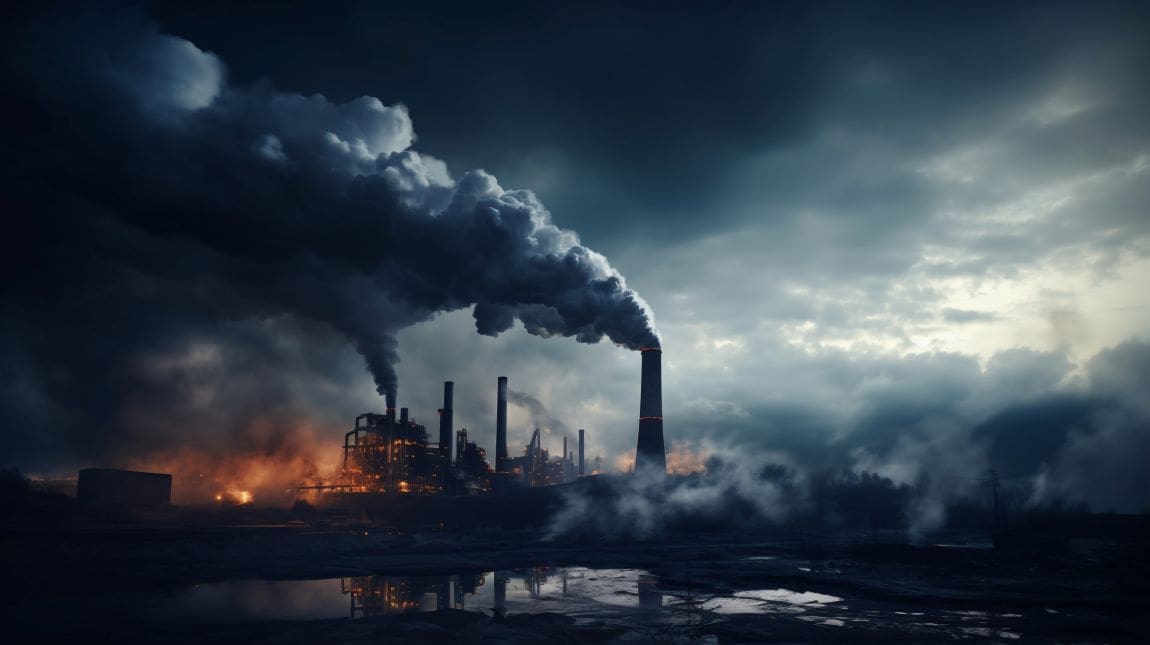By Robin MILLARD | AFP
Geneva, Switzerland – Greenhouse gas concentrations in the atmosphere reached new record highs in 2023, locking in future temperature increases for years to come, the United Nations warned Monday.
Levels of the three main greenhouse gases — the climate-warming carbon dioxide, methane and nitrous oxide — all increased yet again last year, the UN’s weather and climate agency said.
The World Meteorological Organization said carbon dioxide was accumulating in the atmosphere faster than ever, up more than 10 percent in two decades.
The WMO’s annual Greenhouse Gas Bulletin comes ahead of the November 11-22 COP29 UN climate summit in Baku.
“Another year. Another record. This should set alarm bells ringing among decision-makers,” WMO chief Celeste Saulo said in a statement.
“We are clearly off track to meet the Paris Agreement goal.”
Under the 2015 Paris Agreement, countries agreed to cap global warming at “well below” two degrees Celsius above average levels measured between 1850 and 1900 — and 1.5C if possible.
As long as emissions continue, greenhouse gases will keep accumulating in the atmosphere, raising global temperatures, WMO said.
Last year, global temperatures on land and sea were “the highest in records dating as far back as 1850”, it said.
Given how long CO2 lasts in the atmosphere, current temperature levels will continue for decades, even if emissions rapidly shrink to net zero.
– ‘Real impact’ –
In 2023, CO2 concentrations were at 420 parts per million (ppm), methane at 1,934 parts per billion, and nitrous oxide at 336 parts per billion.
That marks hikes of 151 percent, 265 percent and 125 percent of the pre-industrial levels before 1750.
“These are more than just statistics. Every part per million and every fraction of a degree temperature increase has a real impact on our lives and our planet,” said Saulo.
CO2 accounts for about 64 percent of the warming effect on the climate.
Its annual increase of 2.3 ppm marked the 12th consecutive year with an increase greater than two ppm — a streak caused by “historically large fossil fuel CO2 emissions in the 2010s and 2020s”, the report said.
Last year’s figure is 11.4 percent above the 337.1 ppm recorded in 2004.
“CO2 is accumulating in the atmosphere faster than at any time during human existence,” the report said, adding that the current atmospheric CO2 level was 51 percent above that of the pre-industrial era.
The last time the Earth experienced a comparable concentration of CO2 was three to five million years ago, when the temperature was 2-3C warmer and the sea level was 10-20 metres higher than now, it said.
Just under half of CO2 emissions remain in the atmosphere, while the rest are absorbed by the ocean and land ecosystems.
But now “we face a potential vicious cycle”, WMO deputy chief Ko Barret warned.
Climate change itself could soon “cause ecosystems to become larger sources of greenhouse gases”, she said.
“Wildfires could release more carbon emissions into the atmosphere, whilst the warmer ocean might absorb less CO2. Consequently, more CO2 could stay in the atmosphere to accelerate global warming.
“These climate feedbacks are critical concerns to human society.”
rjm/nl
© Agence France-Presse
Featured image credit: Freepik




